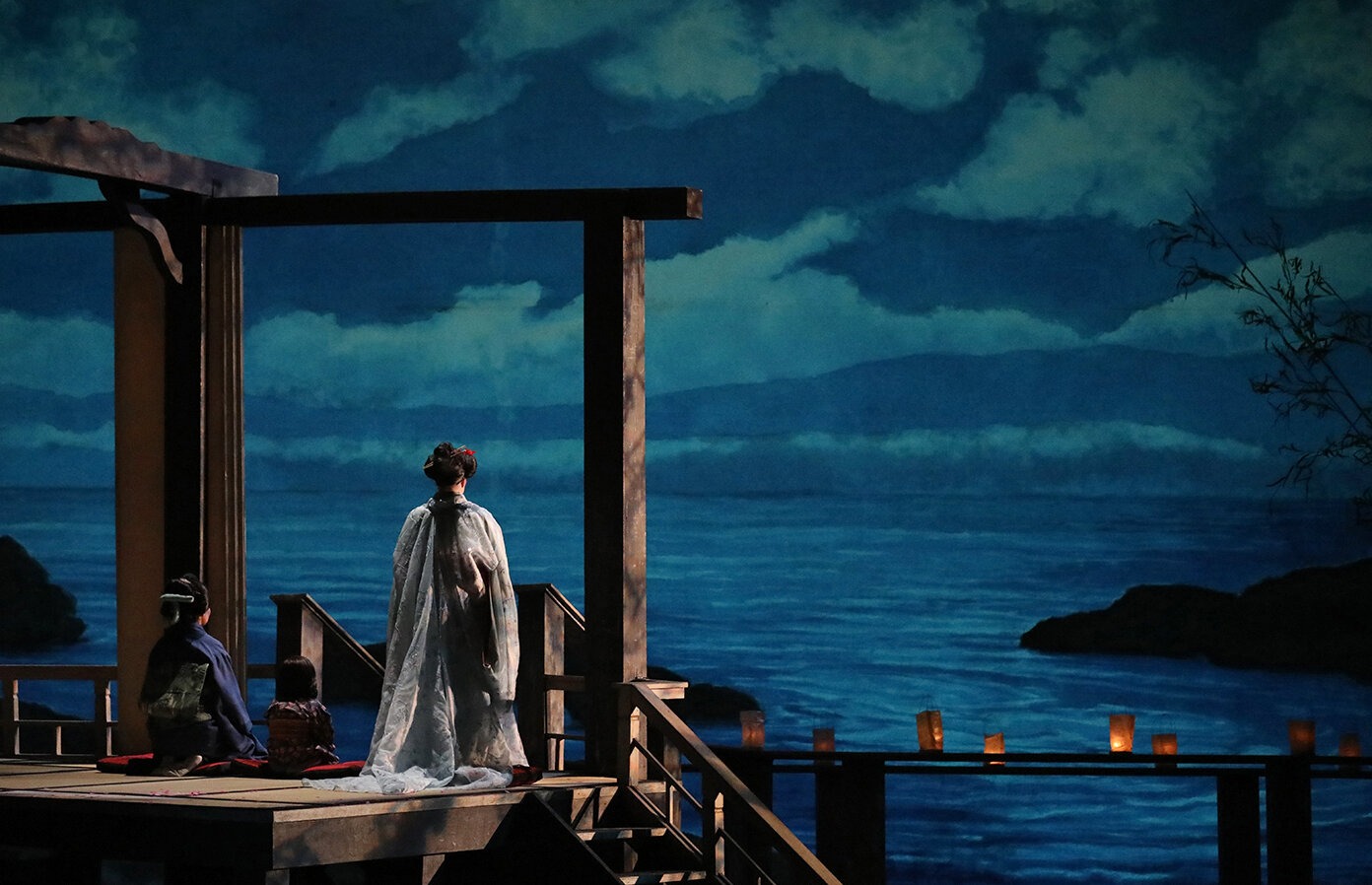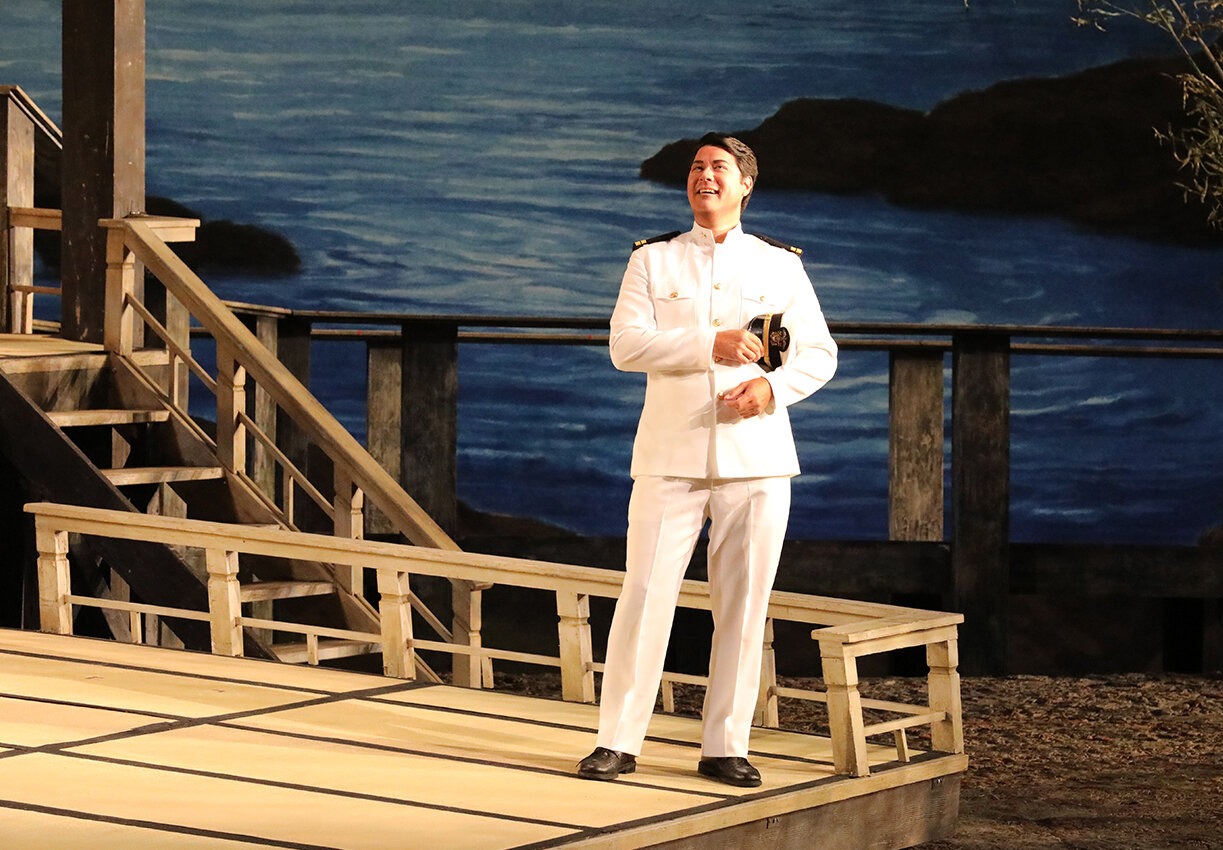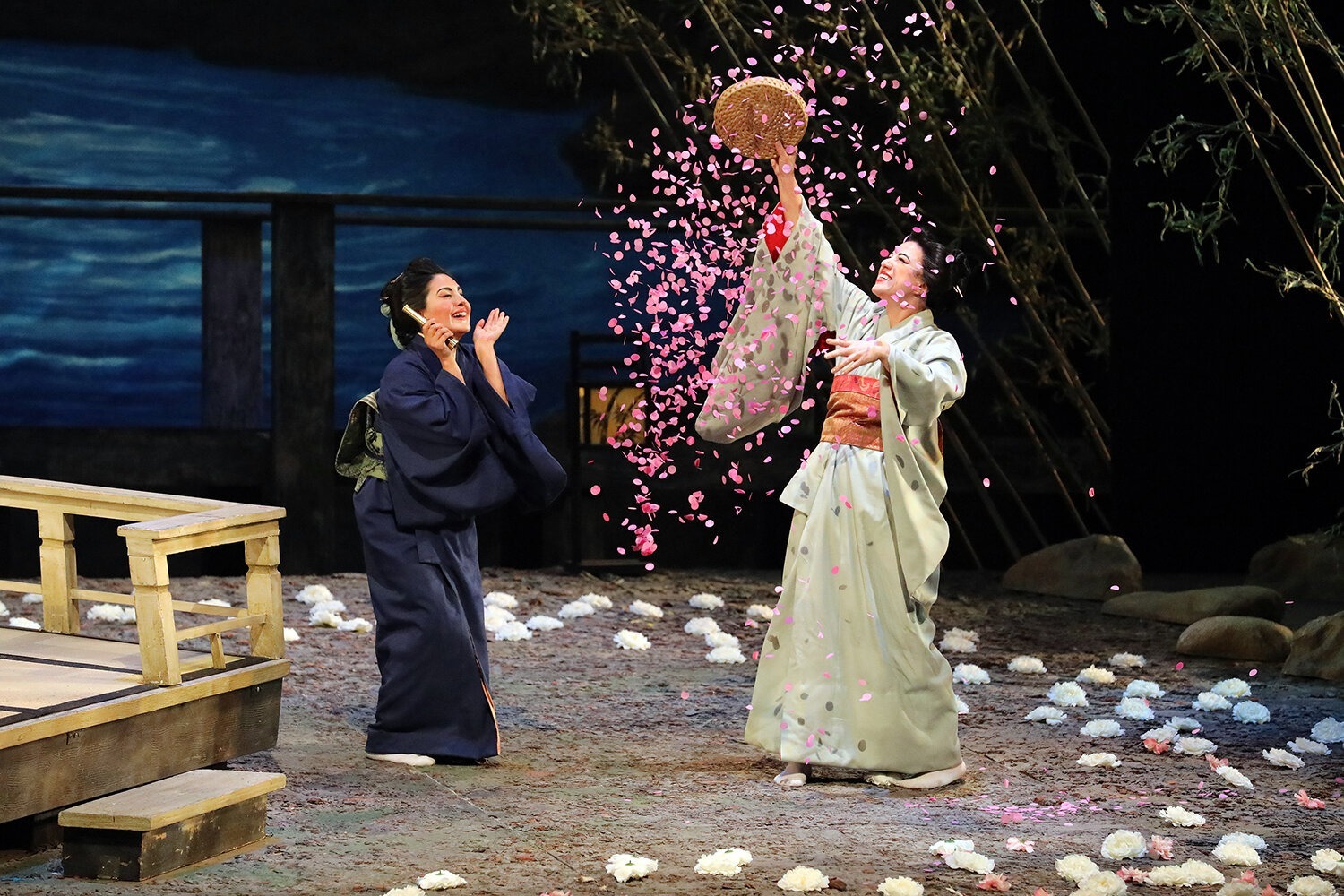Nashville Opera’s Madama Butterfly
On October 10, Nashville Opera opened its 2019 season with a delightful production of Giacomo Puccini’s Madama Butterfly at the Andrew Jackson Hall in the Tennessee Performing Arts Center. The production, starring the Cuban American lyric soprano Elizabeth Caballero, was remarkable for the exquisite vocal performances as well as its heart-rending telling of Puccini’s tragic tale.

Completed in 1904, Madama Butterfly, like most of Puccini’s works, rests uncomfortably somewhere between the long evolution of Italian opera and an expression of the verismo movement of the time. First a movement in literature and then in opera, a verismo narrative is characterized by a naturalistic setting in which a poor or common character is driven to a catastrophic end by, as W.H. Auden once put it, “…an impersonal natural need outside his control.” These impersonal, natural needs are typically social constructs of religious and/or societal norms.
In Madama Butterfly, the expectations of marriage and family are the societal norms that drive Puccini’s exotic heroine, Cio-Cio San (aka Butterfly) to marry Lieutenant Pinkerton, and to wait for him when all others have given up hope for his return. It is Pinkerton’s undermining of these expectations that ultimately lead to her suicide. However, Cio-Cio San is not a common woman. Born wealthy, she is not forced to make immoral decisions due to these impersonal needs; rather, she is able to make markedly moral decisions despite those needs. A woman with an undying faith is a stereotype in Romantic opera, one thinks of Agathe (Der Freishcütz), Senta (Der Fliegende Holländer) or Desdemonda (Otello) and in this way she is almost a typical opera heroine set within a tragic verismo context.
Caballero, with her grace, charismatic presence, stamina and wondrous instrument, is cast perfectly as Butterfly. Indeed, she thrives in Puccini’s relentless setting. From her entrance aria early in the first act, where she is brought to the very top of the soprano range, until the very end, Caballero’s intensity and presence was remarkable. Her central aria, “Un bel dì vedremo,” was simply astonishing, her delicate voice’s gentle timbre clearly articulating Butterfly’s hopeless optimism.
Maestro Dean Williamson and the Nashville Opera Orchestra deserve mention here for their subtle handling of Puccini’s motivically organized opera. Apart from the “Un bel dì” motive, which is overtly reprised at Pinkerton’s return, Puccini’s motivic designs are less directly referential than his earlier works, with some creating more of a musical atmosphere and ambiance. Williamson handled this subtle design with great care, all the while maintaining the incredibly important balance in Puccini’s Orchestra—the heavy orchestral brass accompanying the “heroic” Pinkerton versus the lighter and more delicate presence of Butterfly.

For his part, Adam Diegel played a dashing Pinkerton, with a bright and polished tenor that made his naïve seduction of Butterfly quite believable. His and Cabllero’s voices blended with a surprisingly poignant intimacy at the end of the first act in their duet “Viene la sera.” Pam Lisenby’s costuming was simple but elegant–Pinkerton appears in the first act in a heroic white uniform but returns in a dreaded black uniform. The straight and square lines of his uniform contrasted powerfully with the flowing curves and colorful prints of Butterfly’s kimonos.
Sharpless, the American Consul, is one of the most innovative of Puccini’s narrative characters. This baritone part, a voice type traditionally reserved for the antagonist, here plays the role of a Greek chorus, warning Pinkerton (and the audience) of the approaching catastrophe and commenting on it afterwards. As Sharpless, on Thursday Lester Lynch seemed to have some difficulties in terms of power in the first act, but by the second his voice bloomed into a well-rounded sound that carried throughout TPAC’s very difficult hall. His acting was delightful, at times humorous and at others reprimanding.
If Sharpton communicated the wrongs in Pinkerton’s seduction, Suziki, played by the wonderful Cassandra Zoe Velasco, expressed the pain that it inflicted on Butterfly. At the end of the second act, her flower duet with Butterfly was delightful when their voices gently blended in a magical moment as cherry blossoms floated down from above.

Joel Sorensen, as the marriage broker Goro, was pretty darn funny, as was Brent Hetherington as Prince Yamadori (Hetherington doubled well as “The Bonze”). The blocking of the production was genius with Kate Pinkerton (Sara Krigger) innocently invading Butterfly’s space and privacy; an encroachment on Butterfly’s world that served as an immediate and symbolic expression of Western imperialism’s influence on the East.
In all Director John Hoomes has pulled off another success and it bodes quite well for a fun season of Nashville Opera, which will return in December with a production of Gian Carlo Menotti’s holiday opera Amahl and the Night Visitors.



